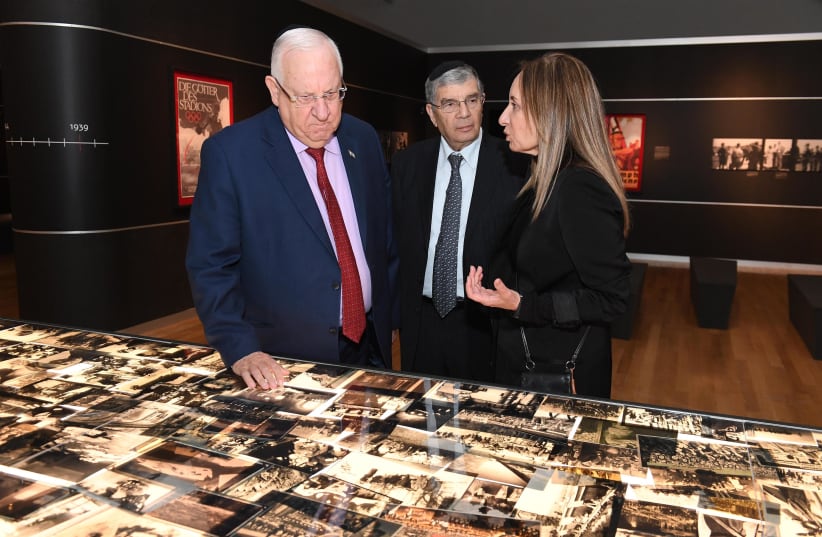The video included an address by American Holocaust researcher Prof. Alvin Rosenfeld. Rosenfeld, who said he had been a good friend of Elie Wiesel, who admitted to being mistaken in predicting he would not see antisemitism again after the Holocaust. “Virtually everyone was wrong,” said Rosenfeld. “I never expected to become a scholar of post-Holocaust antisemitism. It’s real and it’s urgent.”Dr. Na’ama Shik, the director of the e-learning department at Yad Vashem’s International School for Holocaust Studies, also spoke.Rivlin in his address referred to current antisemitism, racism and neo-Nazism. “In this environment, Jews feel threatened in the countries in which they live and some feel the need to hide their identities,” he said.After the Holocaust, he recalled, there was a commitment to “Never again,” and only a few years ago did the United Nations take the important decision of designating International Holocaust Remembrance Day on the anniversary of the liberation of Auschwitz.But remembrance is not enough, Rivlin underscored. “We must fight this new antisemitism.”As we near #InternationalHolocaustRemembranceDay 73 years since the fires of the Auschwitz crematoria were extinguished. Remembrance alone is not enough. We must not give in to anti-Semitism. We must fight against anti-Semitism, even when it hides as anti-Israel. @yadvashem pic.twitter.com/xMdky5koBd
— Reuven Rivlin (@PresidentRuvi) January 25, 2018
President Rivlin to foreign envoys: Israel ‘not compensation for Holocaust’
“The State of Israel came into being from the right of the Jewish people to self-determination in its own homeland.”
